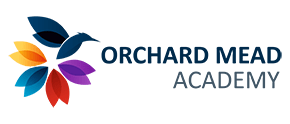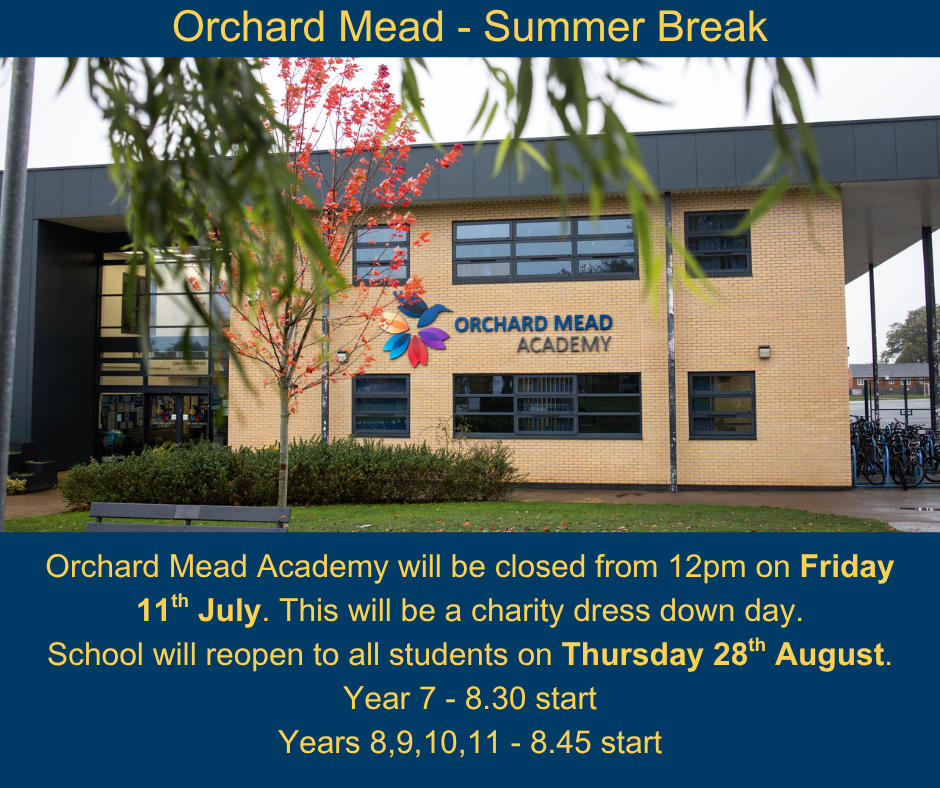“Without language, one cannot talk to people and understand them; one cannot share their hopes and aspirations, grasp their history, appreciate their poetry, or savour their songs.” – Nelson Mandela
Introduction
At Orchard Mead Academy, education is enriched by the diverse ethnicity, culture, and language of our students. We are dedicated to providing high-quality teaching for all, including those who are bilingual or who have English as an additional language.
We understand the importance of identifying each student’s individual needs and recognizing the unique skills they bring to the school. Our commitment to equality of access to the curriculum ensures that every student, regardless of their background, has the same opportunities to succeed.
We provide direct language support from specialist teachers, but we also take a whole-school approach to equality of access to the curriculum. This includes creating a learning environment that incorporates a wide range of teaching and learning strategies, multicultural and multilingual resources and displays, and celebrating a variety of world cultural events throughout the school year.
All staff are responsible for ensuring that all pupils, including EAL pupils achieve their full potential.
The Leader of the EAL at Orchard Mead Academy is Ms I. Kaminska-Placzek
(email: [email protected])
What is EAL?
The government’s definition of an EAL learner is: ‘A child with English as an additional language is one who was exposed to a language other than English during their early years and continues to be exposed to this language in the home or in the community.’
English Proficiency Levels
At Orchard Mead Academy we have been using The Bell Foundation framework to gain a meaningful understanding of our EAL learners’ development. It helps us to observe the ways bilingual pupils start to use English as a tool for learning in school, then continue to develop their use of English through all their subject areas. The stages describe the development of communicative behaviour in class and language for learning through listening, speaking, reading and writing. It also includes some aspects of personal development likely to be significant for bilingual learners, such as readiness to speak to others in the classroom.
There are five stages of English language proficiency:
A – New to English
Those students may use their first language for learning and other purposes. They may remain completely silent in the classroom. May be copying/repeating some words or phrases. May understand some everyday expressions in English but may have minimal or no literacy in English. Needs a considerable amount of EAL support.
B – Early Acquisition
May follow day-to-day social communication in English and participate in learning activities with support. Beginning to use spoken English for social purposes. May understand simple instructions and can follow narrative/accounts with visual support. May have developed some skills in reading and writing. May have become familiar with some subject specific vocabulary. Still needs a significant amount of EAL support to access the curriculum.
C – Developing Competence
May participate in learning activities with increasing independence. Able to express self orally in English, but structural inaccuracies are still apparent. Literacy will require ongoing support, particularly for understanding text and writing. May be able to follow abstract concepts and more complex written English. Requires ongoing EAL support to access the curriculum fully
D – Competent
Oral English will be developing well, enabling successful engagement in activities across the curriculum. Can read and understand a wide variety of texts. Written English may lack complexity and contain occasional evidence of errors in structure. Needs some support to access subtle nuances of meaning, to refine English usage, and to develop abstract vocabulary. Needs some/occasional EAL support to access complex curriculum material and tasks.
E – Fluent
Can operate across the curriculum to the level of competence equivalent to that of a pupil who uses English as his/her first language. Operates without support across the curriculum.
KS3 Support
Year 7 and 8
During Key Stage 3, specifically in Year 7 and 8, the school places a strong emphasis on providing targeted support for EAL (English as an Additional Language) students who find themselves at a unique stage in their language development. This support is extended to those students who have either no English language skills at all or possess limited proficiency in their native language.
Structured intervention is essential for these students as it serves as a foundational building block for their academic journey. It is designed to bridge the gap between their current language abilities and the proficiency required to fully engage with the curriculum. This intervention program encompasses various aspects of language acquisition, focusing on the development of vital skills such as listening, speaking, reading, and writing.
To ensure that these students receive the necessary support and guidance, dedicated educators work closely with them, employing instructional methods that are tailored to their individual needs.
The objective is to empower these students with the linguistic tools and confidence they need to integrate into mainstream classes effectively. Literacy interventions are a crucial in unlocking pupils’ potential and enabling them to thrive academically, fostering a sense of belonging and equal access to educational opportunities for all students, regardless of their language background.
Year 9
English as an Additional Language (EAL) students who require support in their English skills receive regular, targeted literacy intervention during their two weekly French language lessons. These students participate in a carefully tailored English literacy program designed to cater to their specific needs. The curriculum is aligned with the French language curriculum, ensuring a seamless integration of language development. The curriculum is centred around three themes: Media, Holidays, and Relationships.
Outside of their dedicated literacy sessions, EAL students attend mainstream classes as part of their regular timetable. Their progress is vigilantly monitored through both formative and summative assessments, allowing educators to provide ongoing support and adapt the intervention to their evolving language proficiency.
KS4 Support
In KS4 (Year 10 and 11) students with limited English skills study an English Functional Skills course as one of their option subjects. Edexcel qualifications support learners whose first language is not English, helping them to gain the communication skills needed to progress in education and transfer skills across other subjects. During the course, students have an opportunity to complete Entry Level 1 / Entry Level 2 /Entry Level 3 English Functional Skills Qualifications in readiness for college.
Functional Skills English is a set of qualifications in English language and communication skills that are designed to help individuals develop practical skills for everyday use. These qualifications are commonly offered in the UK and are often required for employment and further education.
The curriculum is designed to empower students with the practical language skills they need to thrive in society, the workplace, and their personal lives. It’s a versatile and inclusive approach to language education that prioritizes functional proficiency over academic rigor. It helps boost learners’ confidence in their language abilities, enabling them to participate more fully in society and engage in a wide range of activities. The curriculum aims to bridge the literacy gap and promote inclusivity by providing accessible English language education for individuals with diverse backgrounds and abilities.
Functional Skills English assessments provide a means to gauge learners’ progress and offer certification, which can be valuable for both personal and professional development.
The English Functional Skills serves several important purposes:
- Basic Language Proficiency – It aims to equip learners with the fundamental language skills needed to communicate effectively in everyday situations. This includes reading, writing, speaking, and listening skills.
- Life Skills – The curriculum focuses on practical literacy skills that are relevant to real-life situations, such as filling out forms, writing job applications, greetings cards or invitations.
- Employability – By improving English language proficiency, the curriculum enhances learners’ employability prospects.
Access to Further Education – For students interested in pursuing further education, functional skills in English are often a prerequisite for entry into higher-level courses or vocational training programs.
The five threads that consistently run through the curriculum are:
– Citizen and Community
– Domestic and Everyday Life
– Education and Training
– Work and Employment
– Leisure.
Each of these concepts or themes are interrelated and play an essential role in shaping individuals and societies.
‘Citizen and Community’ thread is centred around understanding the various roles and responsibilities of individuals in the community and how one can contribute to making a positive change in society. It is about family, friendship and life in the UK.
The ‘Domestic and Everyday Life’ thread covers the essential aspects of daily life, ranging from food, clothing and shelter. Students study body parts, health issues and how to arrange a doctor appointment.
The ‘Education and Training’ thread is about learning and understanding how knowledge and skills impact personal and social development. Students learn how to stay safe online and how to be better organised which are good for further education and life. Students also receive guidance, how to write a personal statement and complete an application form.
The ‘Work and Employment’ thread provides a comprehensive understanding of the modern work market and how individuals can prepare themselves for work. It guides students how to write a CV, complete a form and how to search for job.
Finally, the ‘Leisure’ thread focuses on the importance of leisure activities and their role in maintaining mental health and well-being. By understanding these threads, learners can grasp the essential elements that shape individuals and communities and prepare themselves for their future roles in society.
Subject Leader/s
Ms I Kaminska-Placzek

